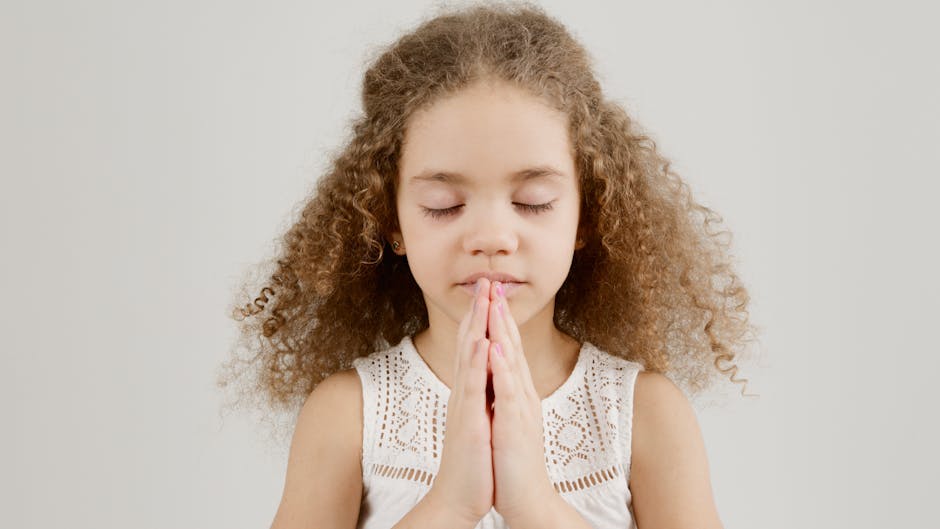Exploring the Power of Gratitude Practices
Gratitude, a simple yet profound concept, has the power to transform our lives in ways we may not even realize. The practice of gratitude involves acknowledging and appreciating the good things in our lives, both big and small. From a simple thank you to a heartfelt reflection on the positive aspects of our day, gratitude practices have the potential to enhance our well-being, relationships, and overall outlook on life.
But what exactly are gratitude practices, and why are they so important? In this comprehensive guide, we will delve into the depths of gratitude practices, exploring their origins, benefits, and practical applications. Join us on this journey as we uncover the transformative power of gratitude in our daily lives.
The Origins of Gratitude Practices

Gratitude practices have been around for centuries, deeply rooted in various cultural and spiritual traditions. From ancient philosophical teachings to religious scriptures, the concept of gratitude has been celebrated as a virtue that brings abundance and fulfillment. For example, in Buddhism, gratitude is considered a key component of mindfulness and compassion, promoting inner peace and contentment.
One of the earliest recorded instances of gratitude practices can be found in the ancient Greek philosophy of Stoicism. Stoic philosophers such as Epictetus and Marcus Aurelius emphasized the importance of gratitude as a way to cultivate resilience and emotional well-being. According to Stoic teachings, gratitude allows us to focus on what we have rather than what we lack, leading to greater happiness and satisfaction.
Fast forward to modern times, and gratitude practices continue to gain popularity as a form of positive psychology. Researchers like Robert Emmons and Martin Seligman have conducted numerous studies highlighting the benefits of gratitude on mental health and overall well-being. By focusing on the positive aspects of life, gratitude practices have been shown to reduce stress, improve mood, and enhance relationships.
The Science Behind Gratitude

So, what exactly happens in our brains when we practice gratitude? Neuroscientists have found that expressing gratitude activates the brain’s reward system, releasing dopamine and creating a sense of pleasure and reward. This neurological response reinforces the behavior of gratitude, making it more likely that we will continue to practice it in the future.
Furthermore, gratitude has been linked to increased activity in the prefrontal cortex, the part of the brain responsible for decision-making, emotional regulation, and social behavior. This suggests that gratitude not only makes us feel good but also enhances our cognitive abilities and interpersonal skills.
Studies have also shown that practicing gratitude can have a profound impact on our physical health. By reducing stress and promoting relaxation, gratitude practices can lower blood pressure, strengthen the immune system, and even improve sleep quality. In essence, gratitude is not just a feel-good emotion; it is a powerful tool for holistic well-being.
The Benefits of Gratitude Practices

The benefits of gratitude practices are wide-ranging and impactful, affecting various areas of our lives. Let’s explore some of the key advantages of incorporating gratitude into our daily routine:
Improved Mental Health
Gratitude has been shown to reduce symptoms of depression and anxiety, promoting a more positive mindset and greater emotional resilience. By focusing on the good things in life, we can reframe negative thoughts and cultivate a sense of optimism and hope.
Enhanced Relationships
Expressing gratitude towards others can strengthen our social connections and deepen our bonds with friends, family, and colleagues. By showing appreciation and acknowledgment, we can create a more supportive and harmonious environment in our personal and professional relationships.
Increased Resilience
Gratitude practices can help us cope with adversity and bounce back from challenges more effectively. By recognizing the silver linings in difficult situations, we can build a sense of inner strength and perseverance that enables us to navigate life’s ups and downs with grace and courage.
Greater Happiness
Gratitude is closely linked to happiness and life satisfaction. By focusing on what we are grateful for, we can experience a profound sense of joy and contentment that transcends external circumstances. Gratitude allows us to find beauty and meaning in everyday moments, leading to a more fulfilling and enriching life.
Practical Tips for Cultivating Gratitude

Now that we understand the benefits of gratitude practices, how can we incorporate them into our daily lives? Here are some practical tips for cultivating gratitude on a regular basis:
Keep a Gratitude Journal
Start a daily gratitude journal where you can write down three things you are thankful for each day. This simple practice can help shift your focus towards the positive aspects of your life and instill a sense of appreciation and abundance.
Practice Mindfulness
Engage in mindfulness practices such as meditation or deep breathing exercises to cultivate a sense of presence and awareness. By being fully present in the moment, you can better appreciate the beauty and wonder of your surroundings, fostering a deep sense of gratitude.
Express Gratitude to Others
Take the time to express your gratitude to the people in your life who have made a difference. Whether it’s a handwritten note, a heartfelt conversation, or a small gesture of kindness, expressing gratitude can strengthen your relationships and bring joy to others.
Count Your Blessings
Create a gratitude jar where you can write down moments of gratitude and store them for later reflection. On days when you need a boost, you can revisit these notes and remind yourself of the many blessings in your life, no matter how small or insignificant they may seem.
Practice Random Acts of Kindness
Engage in random acts of kindness towards others without expecting anything in return. By spreading kindness and generosity, you not only bring joy to others but also cultivate a sense of gratitude and fulfillment within yourself.
The Future of Gratitude Practices
As we look towards the future, the potential of gratitude practices to shape our society and culture is immense. From promoting empathy and compassion to fostering a sense of unity and connection, gratitude has the power to transform our world in profound ways.
By integrating gratitude practices into our educational systems, workplaces, and communities, we can create a more harmonious and inclusive society where kindness and appreciation are valued and celebrated. The ripple effects of gratitude can create a domino effect of positive change, inspiring others to cultivate a mindset of abundance and gratitude.
Common Misconceptions About Gratitude
Despite the numerous benefits of gratitude practices, there are some common misconceptions that may prevent people from embracing this transformative practice. One such misconception is the belief that gratitude is only relevant in times of abundance and prosperity.
In reality, gratitude is most powerful during times of adversity and hardship when we need it the most. By focusing on the positive aspects of our lives, even in the face of challenges, we can cultivate a sense of resilience and hope that enables us to navigate difficult circumstances with grace and courage.
FAQs About Gratitude Practices
Q: Can anyone practice gratitude, regardless of their circumstances?
A: Yes, gratitude is a universal practice that can be embraced by people of all ages, backgrounds, and situations. Whether you are facing hardship or experiencing abundance, gratitude can help shift your perspective and cultivate a sense of appreciation and contentment.
Q: How long does it take to see the benefits of gratitude practices?
A: The benefits of gratitude practices can vary from person to person, but many people report feeling a sense of joy and fulfillment after just a few weeks of consistent practice. By incorporating gratitude into your daily routine, you can start to experience the positive effects relatively quickly.
To Wrap Things Up
In conclusion, gratitude practices have the power to transform our lives in profound ways, enhancing our mental, emotional, and physical well-being. By embracing gratitude as a daily practice, we can cultivate a mindset of abundance and appreciation that leads to greater happiness, resilience, and fulfillment.
So, why not start incorporating gratitude practices into your daily routine today? Take a moment to reflect on the blessings in your life, express your appreciation to others, and spread kindness wherever you go. The more we practice gratitude, the more we realize the incredible power it holds to shape our lives and our world for the better.




